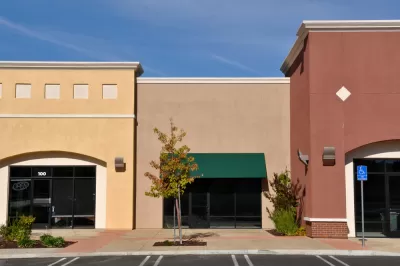David Duyen identifies an under-reported culprit in the so-called "retail apocalypse," and challenges policy makers to respond.

According to David Duyen, the string of bad news about the performance of the retail sector in the United States is at odds with the remainders of the economic picture in the country.
The economy is growing, unemployment is low, and consumer confidence is at a decade-long high. This would typically signal a retail boom, yet the pain rivals the height of the Great Recession. RadioShack, The Limited, Payless, and Toys“R”Us are among 19 retail bankruptcies this year.
Duyen does not accept Amazon and other online realtors as the cause of the "retail apocalypse," however. Instead, Duyen points to debt as the reason for the struggles of traditional retail businesses. Specifically, "[p]rivate equity firms purchased numerous chain retailers over the past decade, loading them up with unsustainable debt payments as part of a disastrous business strategy."
Duyen's argument is built upon detailed analysis recently published by a team of reporters at Bloomberg. That article predicts that the worst is yet to come for retail businesses because billions more in debt is due in the next few years. "Eight million American retail workers could see their careers evaporate, not due to technological disruption but a predatory financial scheme," writes Duyen. "The masters of the universe who devised it, meanwhile, will likely walk away enriched, and policymakers must reckon with how they enabled the carnage."
Duyen notes that policies included in the GOP tax plan making its way through Congress would ostensibly mitigate the situation by removing some of the incentives for private equity to raid companies. However, according to Duyen, the plan also includes a gaping loophole in the form of an exemption for real estate companies.
FULL STORY: The Cause and Consequences of the Retail Apocalypse

Planetizen Federal Action Tracker
A weekly monitor of how Trump’s orders and actions are impacting planners and planning in America.

Chicago’s Ghost Rails
Just beneath the surface of the modern city lie the remnants of its expansive early 20th-century streetcar system.

San Antonio and Austin are Fusing Into one Massive Megaregion
The region spanning the two central Texas cities is growing fast, posing challenges for local infrastructure and water supplies.

Since Zion's Shuttles Went Electric “The Smog is Gone”
Visitors to Zion National Park can enjoy the canyon via the nation’s first fully electric park shuttle system.

Trump Distributing DOT Safety Funds at 1/10 Rate of Biden
Funds for Safe Streets and other transportation safety and equity programs are being held up by administrative reviews and conflicts with the Trump administration’s priorities.

German Cities Subsidize Taxis for Women Amid Wave of Violence
Free or low-cost taxi rides can help women navigate cities more safely, but critics say the programs don't address the root causes of violence against women.
Urban Design for Planners 1: Software Tools
This six-course series explores essential urban design concepts using open source software and equips planners with the tools they need to participate fully in the urban design process.
Planning for Universal Design
Learn the tools for implementing Universal Design in planning regulations.
planning NEXT
Appalachian Highlands Housing Partners
Mpact (founded as Rail~Volution)
City of Camden Redevelopment Agency
City of Astoria
City of Portland
City of Laramie





























